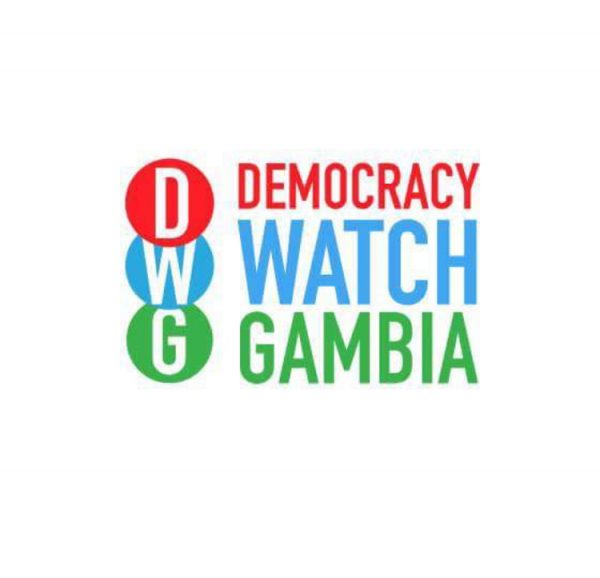 Democracy Watch Gambia Tuesday published a list of recommendations it wants to be included in the amended constitution of the Gambia.
Democracy Watch Gambia Tuesday published a list of recommendations it wants to be included in the amended constitution of the Gambia.
The Gambia’s Ministry of Justice is currently reviewing the country’s 1997 constitution, which it said was heavily flawed and seriously limits the rights and freedoms of Gambians.
“Having conducted this exercise and published our pack today in full in anticipation of the constitution of the Constitutional Review Commission (CRC), we will continue to liaise and work with partner Civil Society Organisations (CSOs) in the Gambia with a view to collectively producing a joint recommendation pack for submission to the CRC for them to consider as part of their review process,” the Democracy Watch Gambia stated.
The Democracy Watch Gambia is calling on other Gambian CSOs in the Diaspora and elsewhere to join this historic collective civic exercise.
Below is a summary of the constitutional review recommendations by the Democracy Watch Gambia
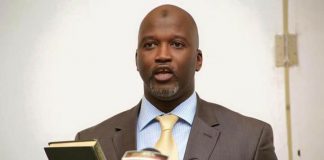
The fall of the APRC regime and the election into office of the Coalition government on the 2nd December 2016 marked the end and the beginning of an era in our country’s long strive for democracy. A battle among series of battles in the strive for democracy had been won and the fight for democracy must therefore continue.
The future of democracy in our beloved homeland basks on the collective selfless sacrifices we as a people are prepared to make. Our view is that, we must all be gatekeepers of our democracy: alert and proactive against all forms of despotic tendencies in the national interest.
In tandem with the above spirit, we the Democracy Watch Gambia (DWG) in anticipation of the constitution of the Constitutional Review Commission (CRC) conducted a holistic review of the 1997 Constitution and formulated a set of recommendations for the CRC to consider. Our recommendations will seek to achieve:
- Constitutional Safeguards
- Establishment of a Constitutionally mandated and publicly funded Constitution Safeguard Ombudsman solely charged with the responsibility of making representations (Constitutional breaches) to the Government and / or Supreme Court on citizens’ behalf.
- Introduction of Constitutional levers to inhibit the emergence of a government / ruling party dominated Legislature.
- Entrenchment of all Constitutional provisions.
- A 2 (two) term limit for the Presidency and the closure of the loophole which could usher in an unelected and Constitutionally ineligible President.
- End state regulation of the press / media; introduction of a self-regulatory mechanism managed and operated by a body set up by the press and media agencies themselves.
- Citizens’ Rights
- Reinforcing of the existing fundamental human rights guarantees and the introduction of a human rights Ombudsman to serve as an independent oversight authority and make legal representations to the relevant authorities and / or Supreme court on aggrieved citizens’ behalf.
- Introduction of diaspora voting and representation Constitutional provision (entrenched) to mandate appropriate legislation (Act of the National Assembly) on the subject.
- Criminalisation of torture and maltreatment of detainees / suspects with a mandatory custodial sentence.
- Standards in Public Life
- Introduction of a respectable criteria for eligibility for cabinet appointment (subject to Parliamentary approval) and a Ministerial code in order to raise standards.
- Introduction of a respectable and fit-for-purpose eligibility criteria (education & civic awareness) for National Assembly candidates.
- Introduction of Constitutionally mandated mechanisms to address the subject of gifts to and by persons in public office.
- Public Accountability
- Reinforce the accountability and oversight levers with respect to the allocation and utility of public finances including the acquisition of loans and signing of deals by the government with significant financial impact to the public purse, sovereignty etc.
- Give Parliament a direct oversight role over Public Enterprises / Corporations and the introduction of a time limited contract (renewable on merit dependent on performance) for heads of such public entities.
- Administration of Justice & Law Enforcement
- Introduction of tape recorded Police interview of suspects in the presence of a legal rep / advisor (lawyer) in place of the status quo (recording of a cautionary statement).
- Free publicly funded legal representation during proceedings for all persons accused of imprisonable offences.
- Independence from political control of the office of the Director of Public Prosecutions.
- Decentralisation of the Police Force: introduction of regional Police forces in place of the current national police force (GPF).
- Reformation of criminal justice, prisons (decentralised) and sentencing (introduction of community / non-custodial sentences for certain offences).
- Democracy
- Total independence of the Electoral Commission of Executive control.
- Democratic regulation by the Electoral Commission of all political parties in order to upgrade and standardise internal political party democracy with those standard and the level of democratic accountability expected of the government of the day; & the public funding of Parliamentary political parties in order to facilitate proper government opposition.
- Introduction of a non-partisan upper (revising) Parliamentary chamber of diverse experts and professionals in order to enhance the quality of overall legislative output.
- Capping of top Executive pay and introduction of a wage ratio to eliminate the unfair wage gap in the public sector and eventually the entire Gambian labour market.
- Overhaul of the national honours system so that it is merit – based and un-politicised.
- Independence of the Public and Civil Services from political control.
- Independence of the Armed Forces from political control.
- Reformation of the National Intelligence outfit so that it becomes an intelligence gathering only agency and not a quasi crime investigation / law enforcement body.
- Reformation of local government administration so that it is localised and free from partisan politics.
- Miscellaneous
- Protection and preservation of Gambian art and culture – prevention of culture erosion and the loss of revenue by the Gambian art industry.
- Land allocation reform in order to make land acquisition / housing available to and affordable for all.
We encourage you to read the full version of our recommendations – a copy of which is available at www.dwgambia.org/.

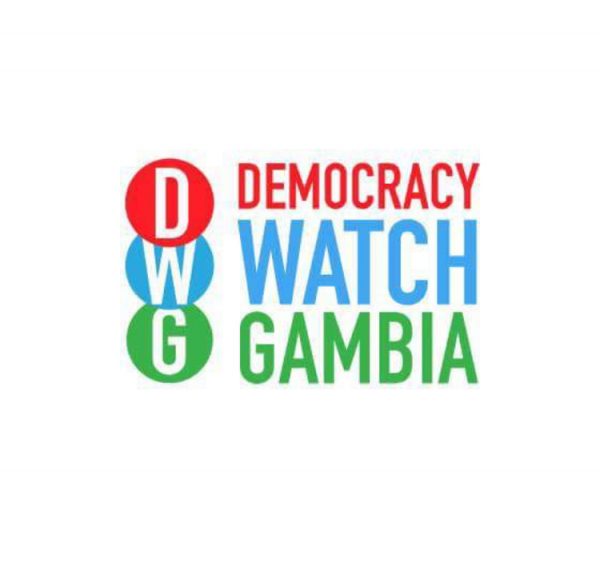
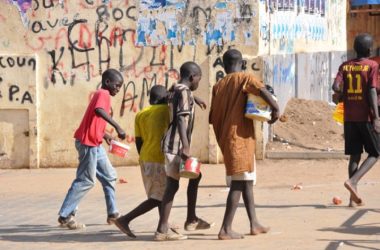
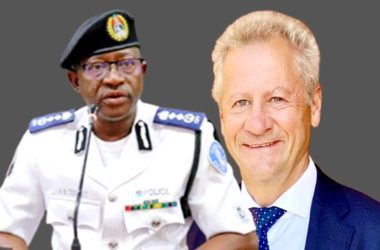


GAF exercise absolute control on our lives for a good 22 plus years. Our history is replete with the tremendous hardship we endured during this period. Our constitution must address the role GAF will be allowed to play in our daily lives.
If government is not to control and police the GAF then who will ?
This statement of wishes seems to lack substance though it does have aspirations/
Perhaps GAF should come under the control of Parliament ?
Sometimes I wish Gambians will think outside the box. What does security mean. What is external threat and what is internal threat. What does a nation need based on it’s people, culture, economy and history. What is the cost of security and can the country afford it.
We know we need a robust internal security mechanism, people need to feel safe, that makes them comfortable, then they can work and play. That is worth every Dalasi spent. The returns are very attractive. In our context, external security is mostly the Army. They deter, prevent and mitigate any incursion. Gambia is already trapped and essentially landlocked. So what exactly is the army going to do if challenged and engaged. The result is obviously capitulation or cataclysmic destruction of GAF. The history of GAF speaks for itself. For the money we spend all we can show for it is a ragtag of armed thugs and criminals trained to murder civilians.
It is much cheaper to sign a bilateral agreement to create a single strong Senegambia force under the command of our President on this side of the border and the Senegalese counterpart on the Senegal side. This way we accomplish all our security goals at a reasonable cost. That is if you believe as I do that Senegal is NOT our enemy.
Indeed Dr Sarr, Senegal must not be seen as an adversary. Or else the ubiquitous phobia for anything Senegalese persists for the unforeseen future. Public officials in positions of authority must learn to believe in themselves for the object of putting smarts, a good measure of dedication to country, wits and perspectives to work at all times!
Allowing the power of decision making to reside in the hands of Ombudsmen, mere mortals that can be subject to political and other influences, may not serve our purposes. Rather, bodies made up of sound, well informed and properly vetted honorable folks may serve oversight roles a whole lot better than one man offices.
Again we must be wary of a legislature that has a hand in every pot. A scenario that may portend a nice recipe for gridlock. Properly constituted oversight committees, that are lean and nimble, may fill this role better.
A lean and non partisan Economic and Social council(s) may also serve an invaluable role in being the listening ears of the administration and also seek to parse fact from fiction as part of digesting the Presidential NDP briefings.
Time and/or the timeliness of activities must be of essence in this newfound democracy.
Ex-President Sir Dawda Kairaba Jawara wrote in his book KAIRABA, page 300 paragraph 3, I quote :
“With the head of government and the foreign minister of Senegal at odds with our agenda, we found our initial meetings quite difficult. However, we would not be cowed and, overtime, we began to make some head way with the concrete issues of sovereignty, independence and territorial integrity, issues that Dia struggled to diplomatically entertain even though it was clear that he was deeply intolerant of any independence agenda for The Gambia. He would rather see our country merge completely with Senegal”. unquote
This is a clear indication of Senegal’s dire intention to COLONIZE the Gambia. Not to forge any merger based on mutual respect for each country’s sovereignty. Those who believe that Senegal is a friendly country are fooling themselves. There is and there has never been any fair play between Senegal and the Gambia.